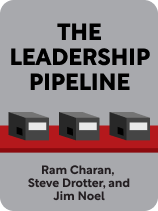

This article is an excerpt from the Shortform book guide to "The Leadership Pipeline" by Ram Charan, Steve Drotter, and Jim Noel. Shortform has the world's best summaries and analyses of books you should be reading.
Like this article? Sign up for a free trial here.
What is a functional manager? What type of skills do functional managers need?
Functional managers are in charge of a functional department. This is part of an organization that comprises all the teams working to accomplish a single specialized function.
Continue reading for a basic overview of a functional manager’s job description.
Understanding a Functional Manager’s Duties
What is a functional manager and what do they contribute to an organization? According to the authors of The Leadership Pipeline, functional managers need to understand their organization’s big-picture strategy at a much deeper level than second-level managers, since they’re the ones who decide on a strategy for the entire department. Whereas line and second-level managers must come up with ways to accomplish certain tasks, functional managers must decide what those tasks are. This functional strategy should contribute to the organization’s big-picture goals as much as possible.
| Functional Management Isn’t Always Required By placing “functional manager” as the third stage of the Leadership Pipeline, the authors assume your organization is following a functional management structure. This is when your organization comprises multiple independent departments, each devoted to a narrow area of expertise. This structure is common because when workers can focus on a single function, they hone their specialized skills and are more productive. That said, some organizations find greater success with non-functional management structures. For instance, a company like Procter & Gamble that offers a wide array of products and services, each of which requires drastically different strategies, may be better suited for a divisional management structure. This is when each division (such as the beauty, baby care, or skin care division) has its own independent team handling each function (for instance, they might each have their own marketing departments). Additionally, each division has a leader devising their own division-specific strategy. So, in this case, the third stage of the Leadership Pipeline would be “division manager” rather than functional manager. |
Functional Managers Must Manage Work They Don’t Understand
The primary skill functional managers must learn is how to make decisions regarding situations that they know very little about, assert the authors. Functional managers can’t be experts in all the different types of work they’re managing. They’re in charge of too many teams, most of which involve work they’ve never done firsthand. This is a difficult challenge to overcome for many newly promoted functional managers, as they’re often hesitant to admit what they don’t know, fearing that it would damage their credibility.
(Shortform note: In Think Again, Adam Grant argues that in the ideal workplace, everyone—not just managers—would be comfortable admitting when they don’t know something. Arguably, it’s even more difficult for lower-level employees than functional managers to admit their ignorance. Since their work is more specialized than that of functional managers, they may feel obligated to know everything about that specialty. Grant asserts that leaders can help reduce the stigma of being wrong by drawing attention to their own flaws and past mistakes. If leaders can successfully shift the organization’s culture in this way, the transition to functional manager might be much easier, since workers already possess the necessary mindset.)
The key to making decisions in unfamiliar situations is gathering ample firsthand information. The authors explain that functional managers can only make wise strategic decisions if they actively listen to team members who are closer to front-line work. To do this, they should have frequent one-on-one conversations with lower-level managers and workers across a wide range of teams.
(Shortform note: In High Output Management, Andrew Grove asserts that for informational one-on-one meetings, the subordinate should plan the agenda. This prompts the subordinate to reflect on their work and realize what information is the most important for them to pass along. Additionally, it saves the manager time, allowing them to hold more meetings and gather more firsthand information.)
To gather information effectively, functional managers need to develop a more subtle communication skill—listening to the meaning behind someone’s words. In other words, they have to pay attention to the attitudes and assumptions underlying what someone’s saying. For example, if a second-level marketing manager is only excited to talk about the newest products, it may indicate that they’re not paying enough attention to the older products that make up most of the company’s sales. If their boss (the functional manager) notices this, they could correct the second-level manager and investigate whether other teams in the marketing department are underprioritizing older products.
(Shortform note: Consider taking time to verify your interpretation of someone’s underlying attitudes and assumptions before using these to make any major decisions. In Talking to Strangers, Malcolm Gladwell argues that most people are much worse at reading the emotions and thoughts of others than they think they are. Additionally, some people are naturally mismatched; that is, their demeanor communicates the exact opposite of their true thoughts and feelings. Generally, you can be more confident in your interpretations of someone after you spend time getting to know how they uniquely express themselves.)

———End of Preview———
Like what you just read? Read the rest of the world's best book summary and analysis of Ram Charan, Steve Drotter, and Jim Noel's "The Leadership Pipeline" at Shortform.
Here's what you'll find in our full The Leadership Pipeline summary:
- Why most organizations end up full of unqualified managers
- The six different levels of management necessary to run any large organization
- The biggest mistake CEOs make that holds them back from success






